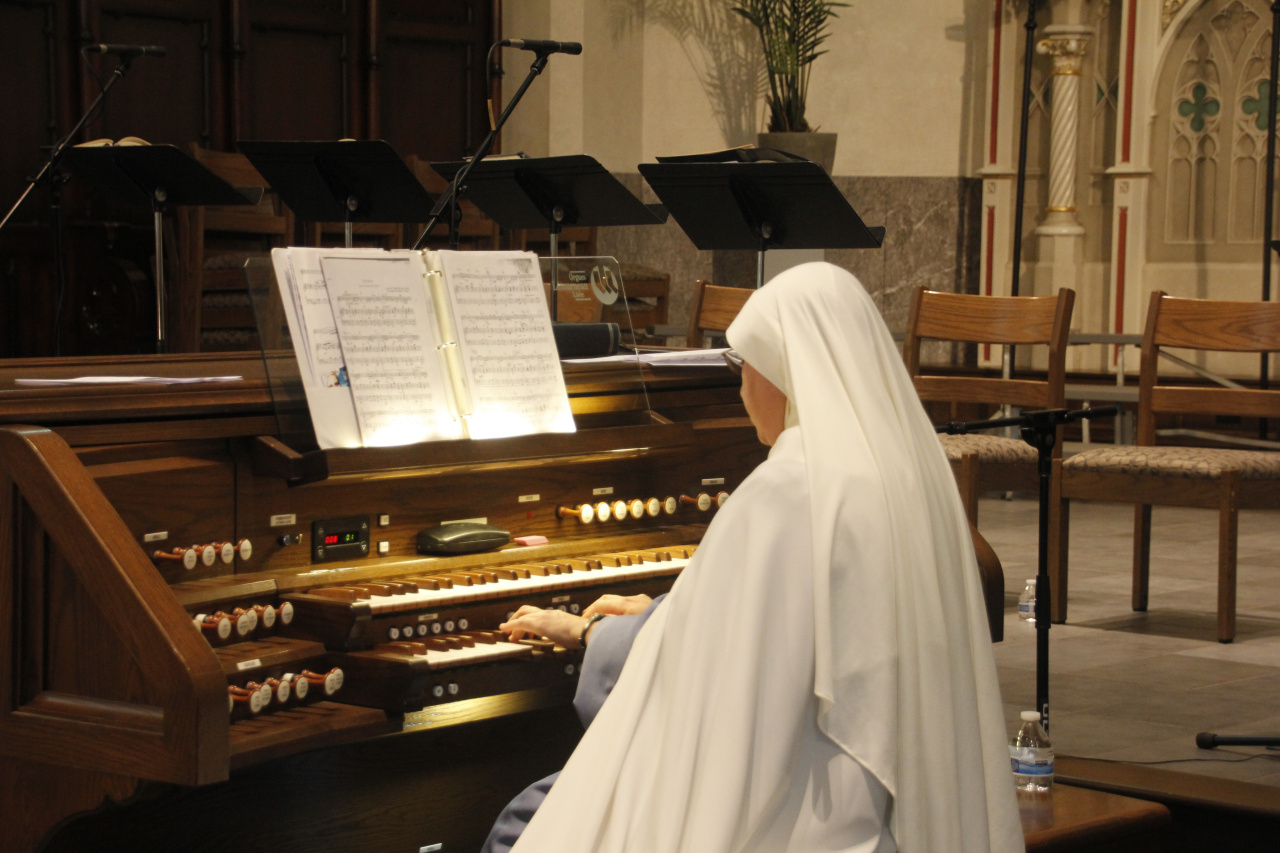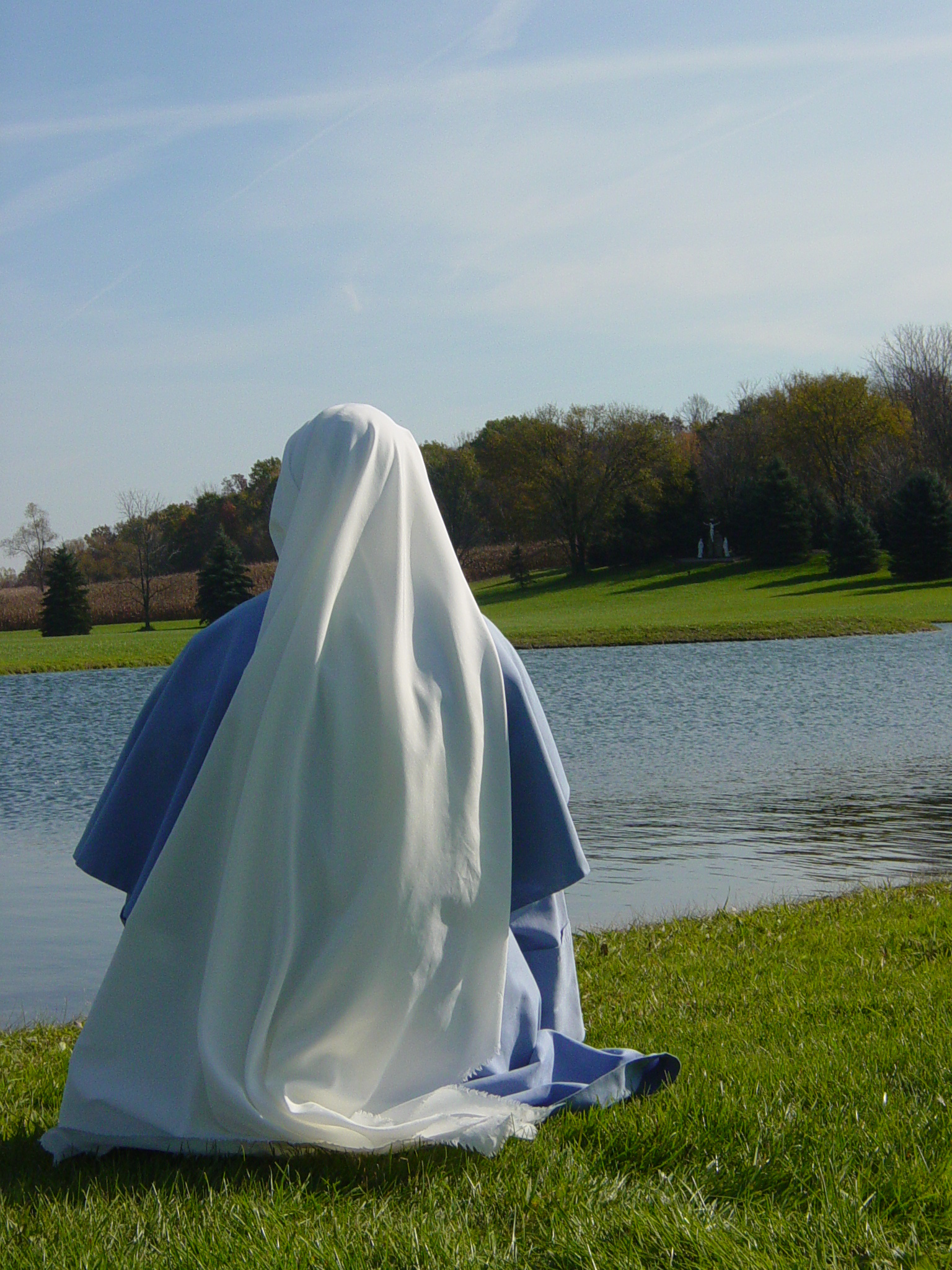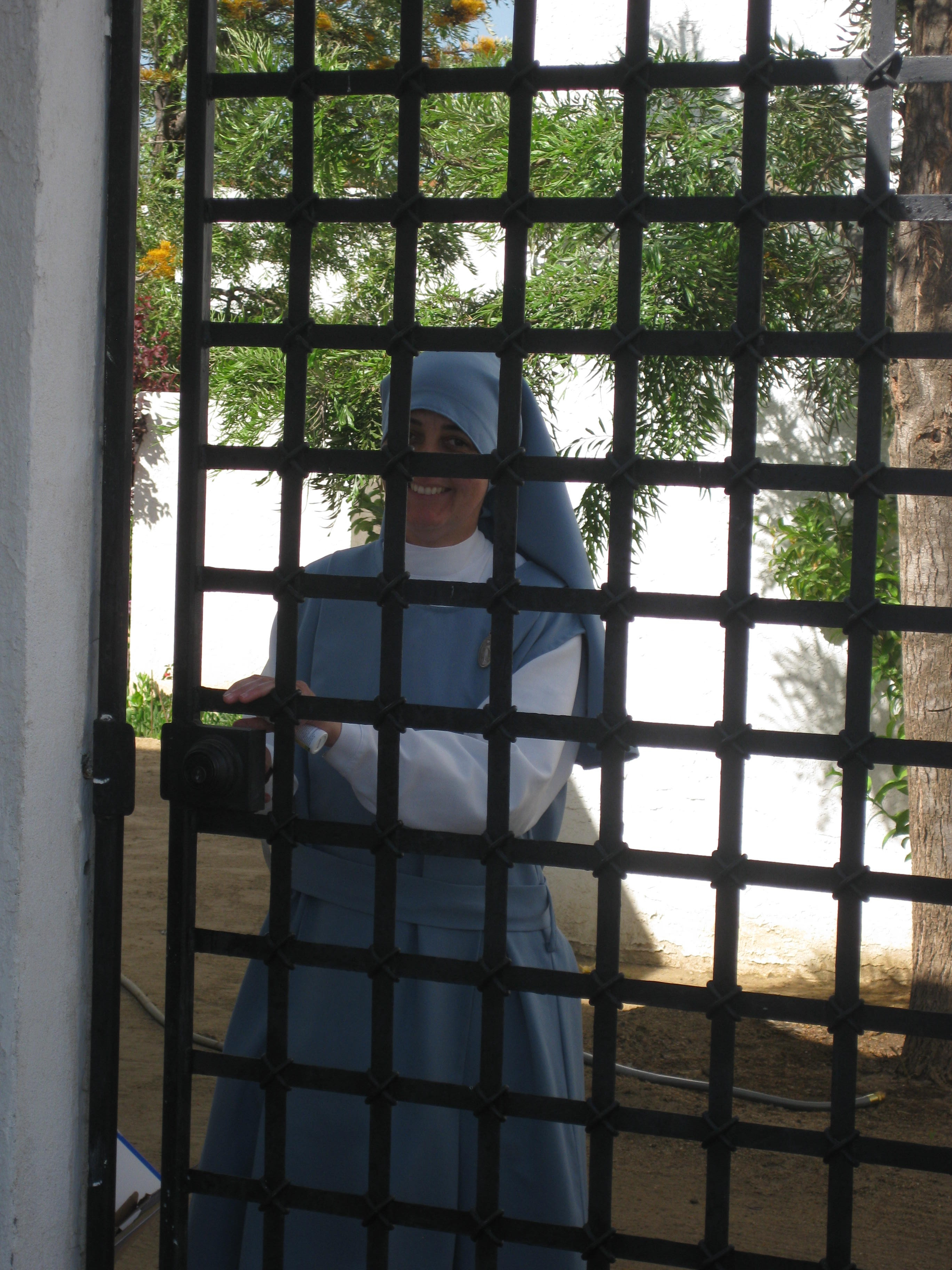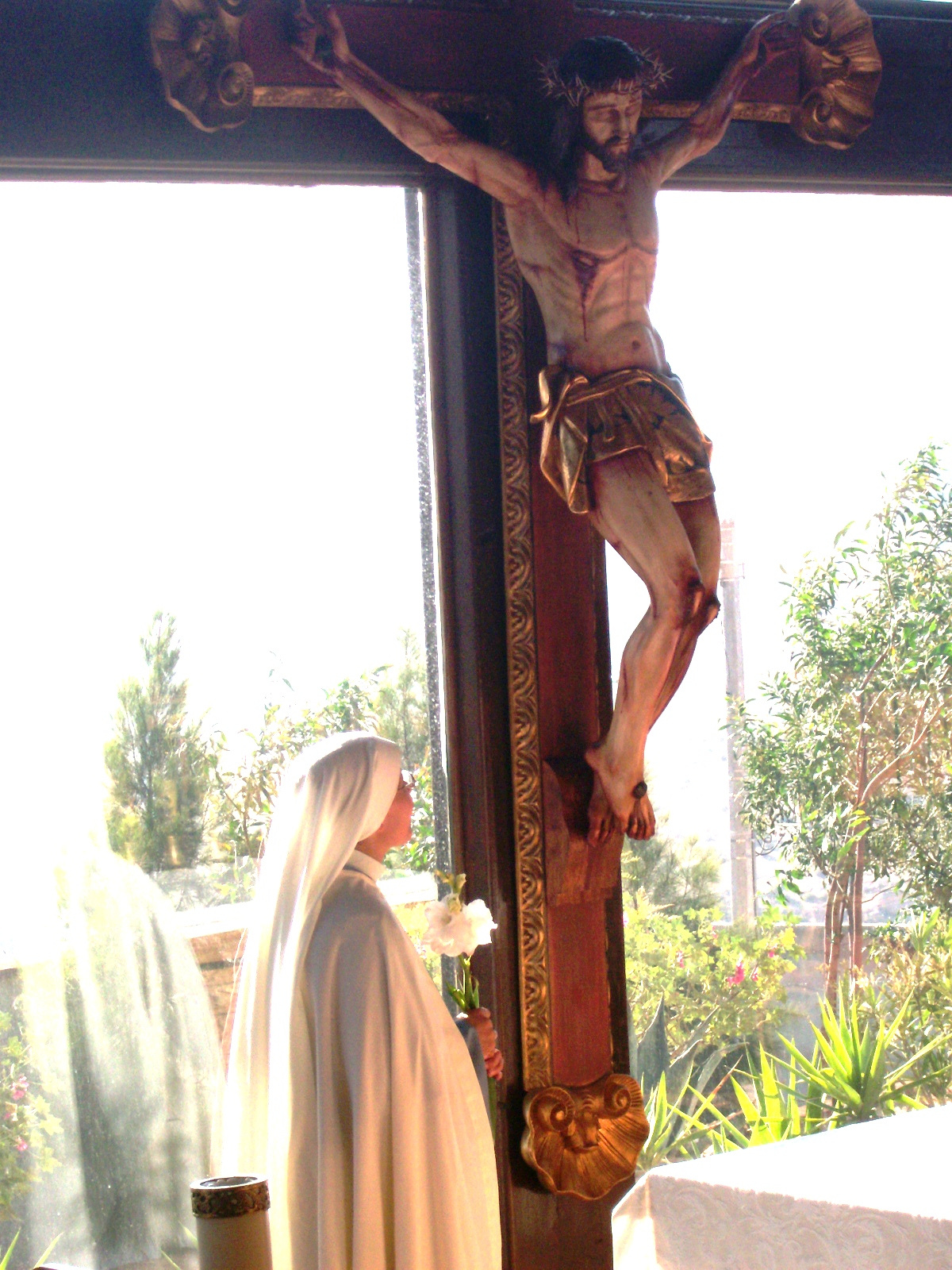The Divine Office
Prayer is our principal work in the heart of the Church. We place our encounter with God before all else, allowing the power of his love to overflow into every aspect of our lives. Raising our minds and hearts to God in praise and intercession, we seek to sanctify the present moment by constant prayer.
The Liturgy of the Hours, or Divine Office, marks our monastic day. It consists of the singing of the psalms as a community at specific intervals. The Divine Office is a special means of offering praise to God, it is the voice of the Bride speaking to the Bridegroom. (SC, 84)
Through prayer of the Divine Office we fulfill a sacred duty, we share in the greatest honor of Christ’s spouse. By offering these praises to God, we are standing before his throne in the name of our Mother the Church. (SC, 85)
Manual Labor

Due to its ascetical value, manual labor is for us a form of discipline that helps integrate the body and soul. Just as Jesus labored with his own hands, we submit ourselves gladly to the common law of work.
Each Monastery has its own unique forms of manual labor. There are many tasks that need attention to maintain our way of life such as raking leaves, gardening, making homemade jams and preserves, and handcrafting religious articles.
There are also common household tasks such as washing dishes and scrubbing floors. Each sister is given a duty or household task to perform. She is responsible for keeping her area clean and in order throughout the day. All is done in a spirit of community and as an act of love to Almighty God.
Sacred Music

From the beginning of the foundation in 1992 we have encouraged the study and use of sacred music in our liturgy. We pray the Liturgy of the Hours in Latin, making use of the Gregorian tones and hymns. On special days and feasts we also implement Sacred Polyphony within the context of the Holy Mass.
In addition to the traditional music of the Church, the sisters have recorded many prayerfully inspired CD’s of contemporary religious music.
Silence and Solitude

To be a contemplative means to be immersed and clothed in silence. In imitation of Mary, the woman of silence, we foster interior recollection and attention to the presence of God throughout the day.
We value solitude as an indispensable aid to growth in communion with God. Our way of living this solitude is through periods of personal solitary prayer and aloneness with God realized principally during our hours of Eucharistic Adoration.
Having adored Our Lord in the solitude of our chapel, we remain alone with him in our hearts no matter what our occupation.
Common Life


We live a common life of prayer, recreation, study, work, and rest within the holy grounds of the Monastery. The daily rhythm of the monastery provides for a healthy interaction with each member as we assist each other in our common journey to encounter God.
Called together by Divine Providence from different cultures and backgrounds, we form communities of distinct individuals in a diversity that enriches each one. Despite our differences, we are joined together by God and share one consecration and one heart as we daily learn from and support one another.
Constitutional Cloister

We value the ascetical practice of enclosure as a great help to interior recollection and attentiveness to the presence of God because it provides the separation necessary for an environment of solitude, silence and prayer.
Of the two approved forms of cloister set forth by the Church, we live what is called a “Constitutional Cloister”. This means that we determine in our Constitutions our particular form of separation from the world. This allows us to leave the monastery when necessary to purchase necessities, attend to business and visit the doctor or dentist. On certain occasions we are permitted to attend diocesan events, spiritual conferences, and vocation promotion activities.
Our Constitutional Cloister both protects our members from a dissipation of the contemplative spirit and allows us to associate works of charity with our primary purpose of divine worship (VS,12). To safeguard our contemplative lifestyle, our contact with the world is almost entirely realized at our monasteries.
Monastic Hospitality
In the heart of the Church and the world, we seek to offer an authentic testimony to the primacy of prayer that gives witness to genuine evangelical love. Conscious of the concrete conditions of the men and women of today, we make ourselves available to their needs, not by going out to the world, but allowing the world to come to us. We desire that our monasteries fulfill a spiritual need by offering a place apart for prayer and contemplation where all may come to encounter God and be transformed by him.
We seek to make our monasteries «eloquent signs of communion and welcoming abodes for those who seek God and the things of the spirit», serving Christ in our brothers and sisters after the model of Bethany (cf. Lk 10:38), and sharing our fraternal joy in a way that makes those who visit feel part of our family.
We offer special retreat opportunities and promote the faithful to a higher standard of Christian living and holiness of life, by inviting them to discover Jesus in the Eucharist, and proclaiming to them a conversion based on a revival of their faith, hope and love.
We are especially solicitous of the poor and those in search of God’s healing love by attending to their spiritual and material needs as our resources permit.
Ascetical Life

We strive to imitate the strength of soul amidst suffering exemplified for us by our Lady at the foot of the cross by engaging in a traditional form of monastic asceticism. We value these practices as a means of freeing ourselves from self-love and preparing our souls for union with God.
Our life of penance is inspired by the message of Fatima. We live in a spirit of penance in order to foster a daily conversion unto the Gospel. We strive to believe for those who do not believe, adore for all those who do not adore, hope for those who do not hope and love for all those who do not love (Prayer of the Angel of Fatima).
I ask pardon for those who do not believe, do not adore do not hope and do not love Thee.

